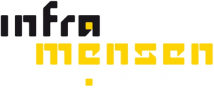Patientory Connecting Electronic Medical Records through Blockchain? A complete review by Alex. B. HealChain
Contents
In a time of global crisis and economic uncertainty, its management, use and sharing are crucial for the resilience of economies … Patientory is a HIPAA-compliant platform, challenging the standards of health data ownership today without compromising privacy and safety. “When you have a system where the hospital and all the practitioners caring for that individual are linked together, everybody gets in real time,” says Frenesa Hall, MD, medical director for Principal Financial Group and Patientory investor. One of the biggest issues addressed by Patientory using the blockchain as the base for its information is its ability to conform to HIPAA Security Rules. By using the blockchain and encrypting patients information over a decentralized network they meet the HIPAA requirements.
Patientory users create an individual profile on the company’s mobile app. Users’ medical information is stored in the secure, HIPAA-compliant blockchain platform, which then allows them to connect with other patients who have similar health issues or concerns, their physicians and their care team. Patients can then actively learn more about their overall health and wellbeing. In addition, patient and clinician users can engage Patientory’s platform to better manage the patient’s care across multiple teams, both inside and outside of the hospital. Patientory’s technology is compatible with a number of EHR systems, including Epic, Cerner, Allscripts and Meditech.
“We came up with Patientory using aspects of the industry that we knew would make the patient experience more positive and help physicians make their population more manageable.” We’re revolutionizing the way healthcare stakeholders and patients interact and gain access to information, cutting out all layers and processes that currently are stumbling blocks in care coordination. Participated in a roundtable with the Office of Science and Technology Policy in providing feedback for policy geared toward creating patient-centric secure, decentralized networks for patient engagement in research and population health.
The app allows users to create a profile that keeps track of their complete health history. This app is free to users and allows them to track all of thi information related to their health care from doctor visits to things like immunizations and medications. I don’t want to judge too harshly; however, my thought is that having a dozen advisors with 6 team members doesn’t succeed. Working in healthcare, I understand how conservative the field can be, hence the need to work with advisors. Nonetheless you can’t act like a Fortune 500 company when you are a startup.
Patientory’s founder and CEO Chrissa McFarlane saw the challenges of managing patient data while she worked at a telemedicine company that handled such matters. It is moderated by users and is in no way affiliated with or endorsed by Patientory management or employees. The company was founded as part of the inaugural class of the Boomtown Health-Tech Accelerator in Boulder, Colo., in spring 2016. Through its connection with the accelerator, Patientory collaborates with Denver-based Colorado Permanente Medical Group, which is part of the Oakland, Calif.-based Kaiser Permanente system. This week, due to so many requests for our CEO to speak this fall, photography is happening here in our offices as headshots are needed for leveraging upcoming opportunities.
They can use Patientory to better manage their health maintenance, appointments and care plan after they leave the hospital. This form of patient engagement is not yet widely enacted by hospitals and health systems. “If the patient is managing what’s going on with their care and it results in better outcomes, the hospital will benefit from that as well,” says Mr. DiMonda. Overall, Patientory believes blockchain technology is the most secure way of preventing your patients’ sensitive health information from cyber attacks. The blockchain shreds and encrypts a patient’s medical record before spreading it across the network until it’s ready to be used again. Electronic health records give doctors fast, reliable and secure access to patient medical histories, prescription records and past test results.
C+Charge believes that the rapid transition to electric mobility is essential to building a sustainable future. Our mission is to create a platform utilizing blockchain technology that will promote the movement of all people and goods on electricity. We endeavour to build the world’s leading EV charging crypto payment patientory roadmap network by investing in, deploying, and partnering with world-class EV charging solutions worldwide. C+Charge users are allocated individual electronic wallets, which are accessed through the C+Charge app. C+Charge’s payment system is powered by the C+Charge utility token that is utilized to pay for each charge.
Health Data Marketplace
Patientory aims to empower patients, clinicians and healthcare organizations to safely access, store and transfer information. As stated in my last post here electronic health records are one of the first problem blockchain has tackled in the healthcare industry. Patients cannot access their entire medical history or integrate lifestyle data into their medical dashboard; patients do not have autonomy or control over their healthcare data. Receive personalized care plans that take both lifestyle and medical data into account. Patientory Founder and CEO Chrissa McFarlane has 10 years of experience in healthcare. “Being part of the system, we were frustrated with the hassle of not having the right people to communicate with,” she says.
With this data, several integrated, multi-specialty medical groups like Mayo Clinic, Intermountain Healthcare and Kaiser Permanente have shown remarkable improvements in quality. Specifically, comprehensive EHRs have helped them reduce medical errors, shorten inpatient stays and produce better clinical outcomes. Like most startups, Patientory’s beginnings stem from the concern from someone about a particular issue. Patientory’s founder set out to develop a platform that can help facilitate the use of Blockchain in some of the most crucial operations of the healthcare industry — the handling of patient information.
Indeed, there’s much to love and much to hate about today’s EHRs, alongside a variety of ways to address the problems they create. Chrissa proceeded to create Patientory in 2015 which is now based in Atlanta. Data interoperability and holistic data integration lead to a more comprehensive, personalized understanding of your health.
The Need For Patientory Technology
Token holders who are drivers will earn extra carbon credits through more charges. By providing an effortless charging experience and the ability to earn carbon credits for drivers, C+Charge is creating a new payment charging model that is good for the planet, good for society, and good for business. C+Charge – Crypto Fueled – Electric Charged.Upcoming RobotEra RobotEra building a sandbox-like planet-rebuilding metaverse. You will become a robot, managing your own land and participating in the creation of the world. Here, create everything you can imagine and start a new era with other robots. Robotera provides a shared multiverse that connects with other worlds, opening theme parks, concerts, museums, and more.
In fiscal year 2017, Medicare will reduce reimbursements for 2,597 hospitals due to readmissions penalties. “From the hospital side, Patientory easily gives providers access to patient information and the ability to transfer it to other care providers.” The tool’s capabilities yield numerous positive benefits to both patients and their providers. • 75% of Beta User respondents have an electronic health record portal on their phone, used the PTOY wallet feature, and own multiple tokens and cryptocurrencies. Simply put, hundreds of thousands of deaths from heart attacks, strokes and cancer could be prevented each year if every American had access to the level of high-quality care these EHR systems enable. Shaping the Future of Data Policy Data is at the heart of the Fourth Industrial Revolution.
Although blockchain originated in the finance industry, it’s now assisting the healthcare sector with building on cybersecurity and moving forward with organizational goals under value-based reimbursement. “In order to achieve those goals, we’re moving in on the value-based initiatives that CMS and the government are pushing, which are about technology and innovation.” But what if you receive your care from a group of doctors — say, a multi-specialty medical group that shares a common EHR? In that case, your data is available to all the physicians in that group.
In addition, because patients with chronic conditions frequently require numerous tests, duplicative tests, screenings or blood work are common and costly. Patientory’s ability to coordinate care greatly reduces the likelihood of unnecessary and wasteful services. Since the whole care team can view a patient’s health history, providers are much less likely to rerun tests. “I see millions of dollars in savings by reducing duplication, along with improving patient compliance with medication regimens and reducing risk of medication issues,” says Dr. Hall. Instead of struggling to coordinate care between numerous physicians, the Patientory app makes it easy for a patient’s care team to connect and share data. Physicians and specialists treating the same patient can log in to Patientory and view the patient’s entire care journey, including medications and health history.
Get the Medium app
Unlike EHRs, which are vulnerable to hacks, Patientory utilizes blockchain technology — a permanent record of online exchanges. Blockchain is managed by distributing nodes, each of which contains a copy of the file and requires users to agree to changes. What’s equally concerning is the team’s experience in blockchain and the healthcare industry… or lack thereof that is. Patientory’s enterprise platform, Neith, allows healthcare stakeholders to create reports and predictive analytics around population health.
But in medicine, even though it’s your life and your health, your information belongs to your care provider. The information is decentralized and currently stored in the largest healthcare information exchange network, the PTOYMatrix powered by blockchain technology. Patientory uses blockchain architecture to decentralize health data, making it more secure and less susceptible to data breaches. Patientory is on a mission to democratize the world’s health and medical data by empowering users with ownership and actionable insights from their health data, incentivizing them to take control of their health outcomes. Securely locate your medical records data safely stored on the PTOYMatrix blockchain network by using your specific credentials from your provider’s patient portal and assign it to your Patientory private key.
- Providers cannot see the bigger picture due to the lack of interoperability and access across current management systems; they cannot create efficient care plans for patients without access to all patient data.
- Patientory aims to empower patients, clinicians and healthcare organizations to safely access, store and transfer information.
- We want to thank each of you for your support and participation with us in bringing this App into being.
- Electronic medical records are not integrated seamlessly across providers and lifestyle data is not a component of care plan creation, leading to rising healthcare costs and poor health outcomes.
Pre-Sale Artyfact Metaverse Artyfact is the first Web3 Gaming Metaverse that combines the best of the AAA and GameFi worlds using an innovative Play-and-Earn model that puts gaming experience ahead of earnings. An exquisite Fortnite/GTA Online-like experience with a Cyberpunk world and Metaverse in-game features. Artyfact citizens are able to play various AAA quality PAE games and earn $ARTY, buy and trade NFTs such as avatars, weapon skins, virtual estate, clothes, as well as attend virtual concerts, NFT exhibitions, runway shows and other events. C+Charge is a blockchain-powered network that is the first on-chain or off-chain platform that allows EV drivers to earn carbon credits simply by driving and charging their vehicles. On to become the universal payment solution for EV charging stations, harnessing the power of blockchain technology with decentralized finance bringing carbon credit sustainability to the masses.
New interviews with our CEO are soon-to-be-published and I look forward to sharing those with you. The first interview will be with industry magazines and have we have scheduled exciting news appearances this Fall that we look forward to telling you more about in the next weeks. As they had so many problems launching, they lost their first mover advantage. I still think they have the potential to improve patient’s life; however, I’m concerned by their previous inability to score points. Blockchain is used to provide end-to-end encryption while adhering to regulatory guidelines and compliance requirements. Completed her capstone with Patientory and has assisted management in making decisions through company operations research.
Patientory’s platform and its use of blockchain, specifically, give it an edge. “It’ll take much longer to see outcomes for some of the other products on the market, not only for the hospital but also for the actual patients,” says Ms. McFarlane. Blockchain’s primary strengths, particularly in the healthcare sector, are grounded in its security and how it makes HIPAA compliance feasible for patients and providers. It achieves HIPAA Security Rules by maintaining a security compliance team, protecting relevant electronic systems and using encryption to control data access. Patientory is a population health data management and analytics company.
Careers
Their plan is to revolutionize patient health management using blockchain technology by allowing health management and healthcare organizations store and transmit information using the security and smart contracts capabilities of the blockchain. They will also enable healthcare professionals manage their care with enhanced social media connections via peer to peer patient engagement. “It’s taking value-based initiatives and transforming them into a holistic patient experience.”
Team
Additionally, an individual patient can log in to Patientory and communicate with all of his or her physicians at once. To accomplish those goals, Patientory interconnects with any electronic health records system, then enables doctors, care providers and consumers to communicate across a single, easy-to-use platform. Patients can also easily connect with the platform to form a larger community. Electronic medical https://cryptolisting.org/ records are not integrated seamlessly across providers and lifestyle data is not a component of care plan creation, leading to rising healthcare costs and poor health outcomes. Under value-based reimbursement, providers whose care yields positive patient outcomes gain maximum reimbursement. Patientory puts a different spin on the traditional healthcare model by giving patients more power in their care journey.
HIPAA and GDPR compliant protected health data storage and access that adheres to region-specific regulatory guidelines. For example, it’s imperative that patients with congestive heart failure closely monitor their weight. Using Patientory, providers can check in on heart failure patients and keep an eye on their weight even after they leave the hospital. Non-chronically ill patients can also benefit by receiving reminders to check in with their physician via Patientory. As part of the Hospital Readmissions Reduction Program, CMS withholds up to 3 percent of Medicare reimbursement to hospitals that record higher-than-expected 30-day readmission rates.
It is developing a platform to securely store and manage health information in real time. Patientory is a blockchain-based distributed electronic medical record storage computing platform. Healthcare entities can secure private health information, rent computing power, servers and data centers and make their unused resources available through a unique private infrastructure on the Ethereum blockchain. From the platform smart contracts can be executed in relation to the patient care continuum cycle.
About Community
Even if one node on the blockchain was completely compromised, the attacker would only receive one random bit of encrypted information about a patient. Using a decentralized system instead of a centralized server makes attacks unlikely. If your medical data is kept in your local physician’s office computer data, the answer is that the doctor both owns and controls it. And in that case, none of your records are “comprehensive” or immediately accessible to providers outside of your doctor’s office. Siloed data across both the $14 billion population health management and $10 trillion global health management markets. We centralize all your medical data so you can easily manage and track your healthcare.



Plaats een Reactie
Meepraten?Draag gerust bij!